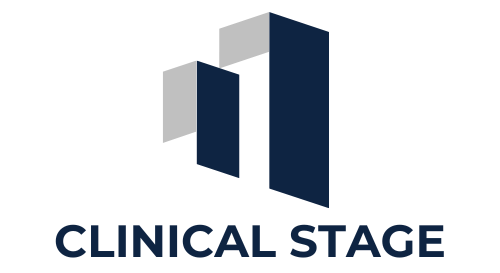The Impact of Precision Medicine on Clinical Trials
In the realm of modern healthcare, precision medicine stands at the forefront of a transformative revolution. By harnessing advances in genomics, molecular biology, and data analytics, precision medicine tailors medical treatments to the unique genetic, environmental, and lifestyle factors of individual patients. This approach represents a paradigm shift from traditional one-size-fits-all medicine to personalized therapies that promise enhanced efficacy, minimized side effects, and improved patient outcomes.
Within the sphere of clinical trials, precision medicine is not merely a concept but a pivotal strategy reshaping research methodologies and therapeutic developments. It integrates sophisticated biomarkers, genomic sequencing, and advanced analytics to identify subpopulations likely to benefit from specific interventions, thereby optimizing trial outcomes and accelerating the pace of medical innovation.
This blog explores the profound impact of precision medicine on clinical trials, examining how personalized approaches are revolutionizing treatment strategies, redefining trial designs, and paving the way towards a future where healthcare is as unique as the individuals it serves. Join us as we delve into the transformative potential of precision medicine and its implications for the future of healthcare delivery.
Foundations of Precision Medicine
At the core of precision medicine lies a deep understanding of the genetic, molecular, and environmental factors that influence disease susceptibility, progression, and treatment response. This personalized approach represents a departure from the traditional one-size-fits-all model of medicine, aiming to tailor healthcare interventions to each individual's unique biological profile.
1. Genetic and Genomic Basis
Precision medicine leverages insights from genetics and genomics to unravel the genetic underpinnings of diseases. Genetic variations, such as single nucleotide polymorphisms (SNPs) and structural variations, play crucial roles in determining an individual's predisposition to diseases and their response to treatments. Advances in DNA sequencing technologies have enabled researchers to conduct genome-wide association studies (GWAS) and identify genetic markers associated with diseases, paving the way for targeted therapies based on genetic profiles.
2. Molecular Profiling and Personalized Treatment Strategies
Molecular profiling encompasses the analysis of biomolecules, such as proteins, RNA, and metabolites, to characterize disease states at a molecular level. By profiling molecular signatures unique to each patient, precision medicine facilitates the development of personalized treatment strategies tailored to specific disease subtypes or genetic mutations. For example, oncology has seen significant strides with the use of molecular profiling to guide targeted therapies that address specific molecular alterations driving tumor growth.
3. Role of Biomarkers in Precision Medicine
Biomarkers are essential tools in precision medicine, serving as measurable indicators of biological processes, disease states, or treatment responses. Biomarkers may include genetic markers, protein expression patterns, imaging characteristics, or biochemical markers detected in blood or tissue samples. In clinical trials, biomarkers enable researchers to stratify patients based on predictive markers of treatment response, monitor disease progression, and validate therapeutic efficacy with greater precision.
Applications of Precision Medicine in Clinical Trials
Precision medicine transforms clinical trials by:
- Enhancing Patient Stratification: Identifying patient subgroups likely to respond to specific treatments based on genetic or molecular biomarkers.
- Facilitating Targeted Therapies: Designing trials that target specific molecular pathways or mutations, maximizing treatment efficacy and minimizing adverse effects.
- Enabling Adaptive Trial Designs: Modifying trial protocols in real-time based on biomarker data, optimizing study outcomes and accelerating drug development timelines.
Understanding the foundations of precision medicine is essential for appreciating its transformative impact on clinical trials and healthcare delivery. By integrating genomic insights, molecular profiling, and biomarker-driven approaches, precision medicine empowers researchers to unlock personalized treatment options that align with individual patient needs, driving advancements in medical science and improving patient outcomes globally.
Precision medicine revolutionizes clinical trials by integrating advanced technologies and personalized approaches to optimize treatment outcomes and accelerate medical innovation. These applications highlight the transformative impact of precision medicine across various disease areas and therapeutic strategies.
1. Patient Stratification and Targeted Therapies
One of the cornerstone applications of precision medicine in clinical trials is patient stratification based on molecular or genetic profiles. By identifying biomarkers indicative of disease subtypes or treatment responses, researchers can categorize patients into distinct subgroups. This stratification enhances the likelihood of therapeutic success by matching patients with treatments tailored to their unique biological characteristics. For example, in oncology trials, molecular profiling guides the selection of targeted therapies that inhibit specific cancer-driving mutations, leading to improved treatment outcomes and prolonged survival rates.
2. Biomarker-Driven Trial Designs
Biomarkers serve as essential endpoints in biomarker-driven clinical trials, facilitating the evaluation of treatment efficacy and safety with precision. Biomarker endpoints may include genetic markers, protein expression levels, or imaging characteristics that reflect disease progression or treatment response. By incorporating biomarker data into trial designs, researchers can monitor patient responses in real-time, adapt treatment protocols based on biomarker dynamics, and streamline decision-making processes. This adaptive approach enhances trial efficiency, accelerates drug development timelines, and maximizes therapeutic benefits for participants.
3. Personalized Treatment Regimens
Precision medicine enables the customization of treatment regimens based on individual patient profiles and disease characteristics. Through molecular profiling and biomarker analysis, clinicians can tailor therapies to target specific molecular pathways or genetic mutations driving disease progression. This personalized approach minimizes the use of ineffective treatments, reduces treatment-related adverse effects, and improves patient adherence by aligning therapies with each patient's biological needs and treatment preferences. Clinical trials leveraging personalized treatment regimens demonstrate enhanced treatment responses, prolonged disease control, and improved quality of life outcomes compared to conventional treatment approaches.
4. Adaptive Trial Designs and Real-World Evidence
Adaptive trial designs leverage biomarker data and real-world evidence to optimize trial protocols and treatment strategies throughout the study duration. These designs allow researchers to dynamically adjust trial parameters, such as patient enrollment criteria, treatment dosages, or trial endpoints, based on emerging data insights and participant responses. By incorporating real-world evidence into trial analyses, researchers enhance the validity and generalizability of study findings, informing regulatory decisions and expanding access to innovative therapies. Adaptive trial designs promote flexibility, efficiency, and responsiveness in clinical research, fostering continuous improvement in patient care and therapeutic outcomes.
Example Company: Notable Labs
Notable Labs is at the forefront of integrating precision medicine into clinical trials through its Predictive Precision Medicine Platform (PPMP). This platform leverages advanced data science, automation, and AI to predict patient responses to specific cancer treatments with high accuracy. By identifying and selecting patients who are likely to respond to treatments, Notable aims to fast-track clinical development, reduce costs, and improve patient outcomes.
For example, in their ongoing Phase 2 trial with volasertib, a PLK-1 inhibitor, Notable is utilizing PPMP to select responders among patients with relapsed/refractory acute myeloid leukemia (AML). This approach not only optimizes treatment efficacy but also minimizes potential toxicity by tailoring doses to individual patients based on body surface area (BSA).
Moreover, Notable’s PPMP has demonstrated significant predictive accuracy, as seen in their fosciclopirox trial, where the platform correctly predicted non-responsiveness in heavily pre-treated patients. This predictive capability underscores the potential of PPMP to revolutionize drug development by avoiding ineffective treatments and focusing resources on promising therapies.
Through these innovative strategies, Notable Labs is advancing precision medicine in clinical trials, aiming to transform patient care and accelerate the development of effective cancer therapies.
By leveraging advanced technologies, biomarker-driven approaches, and personalized treatment strategies, precision medicine optimizes trial efficiency, improves treatment efficacy, and tailors healthcare interventions to individual patient needs. As precision medicine continues to evolve, its integration into clinical trial methodologies promises to shape the future of healthcare by delivering targeted therapies and personalized care that maximize therapeutic benefits and improve quality of life for patients worldwide.
Challenges and Considerations
Despite its transformative potential, the integration of precision medicine into clinical trials presents several challenges and considerations that researchers, healthcare providers, and regulatory bodies must navigate to ensure its ethical, practical, and regulatory soundness.
1. Validation and Standardization of Biomarkers
One of the primary challenges in precision medicine is the validation and standardization of biomarkers used to guide patient stratification and treatment decisions. Biomarkers must undergo rigorous validation to ensure their accuracy, reproducibility, and clinical utility across diverse patient populations. Variability in biomarker assays, analytical techniques, and data interpretation may impact consistency and reliability, posing challenges in translating biomarker discoveries into clinical practice and regulatory approval.
2. Data Integration and Interpretation
Precision medicine relies on comprehensive data integration from multiple sources, including genomic sequencing, molecular profiling, clinical outcomes, and patient-reported data. The complexity of integrating and interpreting diverse datasets presents challenges in identifying clinically relevant biomarkers, predicting treatment responses, and optimizing patient outcomes. Advanced analytical tools and interdisciplinary collaboration are essential to harnessing big data insights and translating them into actionable clinical decisions in real-time.
3. Ethical and Regulatory Considerations
Ethical considerations in precision medicine encompass issues of patient consent, data privacy, and equitable access to biomarker-driven therapies. Researchers must uphold ethical standards in obtaining informed consent for biomarker testing and ensure transparency in communicating risks, benefits, and implications of biomarker-guided treatments to patients. Regulatory agencies play a critical role in establishing guidelines for biomarker qualification, validation standards, and evidence generation to support biomarker-driven drug approvals and healthcare interventions while safeguarding patient rights and ensuring data integrity.
4. Cost and Accessibility
The development and implementation of precision medicine technologies, including genomic sequencing and biomarker assays, may involve substantial costs and resource investments. Access to advanced biomarker technologies and specialized expertise varies across healthcare settings and geographic regions, potentially limiting equitable access to personalized treatment options. Addressing cost-effectiveness, scalability, and reimbursement policies is essential to expanding access to biomarker-driven therapies and ensuring healthcare equity for all patient populations.
5. Integration into Clinical Practice
Successfully integrating precision medicine into routine clinical practice requires overcoming barriers related to physician education, workflow integration, and patient engagement. Healthcare providers must be equipped with the knowledge and skills to interpret biomarker data, apply personalized treatment strategies, and communicate effectively with patients about biomarker-driven treatment options. Bridging gaps in healthcare infrastructure, fostering multidisciplinary collaboration, and leveraging digital health technologies are crucial to overcoming implementation challenges and realizing the full potential of precision medicine in improving patient outcomes and healthcare delivery.
Navigating the challenges and considerations associated with precision medicine in clinical trials requires a collaborative effort among researchers, healthcare providers, policymakers, and patient advocates. By addressing validation issues, enhancing data integration capabilities, upholding ethical standards, and promoting healthcare equity, stakeholders can harness the transformative potential of precision medicine to advance personalized healthcare, optimize clinical trial outcomes, and improve health outcomes for diverse patient populations globally. As precision medicine continues to evolve, continued investment in research, infrastructure, and regulatory frameworks will drive innovation and shape the future of healthcare delivery worldwide.
Case Studies and Success Stories
Illustrating the transformative power of precision medicine, case studies and success stories highlight how personalized approaches have revolutionized clinical trials, leading to breakthroughs in treatment efficacy, patient outcomes, and healthcare innovation.
1. Oncology: Targeted Therapies in HER2-Positive Breast Cancer
One of the most compelling examples of precision medicine's impact is in HER2-positive breast cancer treatment. HER2 (Human Epidermal Growth Factor Receptor 2) is a biomarker found in approximately 20% of breast cancers, indicating an aggressive form of the disease. Clinical trials utilizing targeted therapies such as trastuzumab (Herceptin) have shown remarkable success in HER2-positive patients, significantly improving survival rates and reducing recurrence compared to conventional chemotherapy alone. This targeted approach exemplifies how biomarker-driven trials can tailor treatments to specific molecular profiles, enhancing therapeutic outcomes and quality of life for patients.
2. Infectious Diseases: Antiretroviral Therapy in HIV/AIDS
Precision medicine has transformed the management of HIV/AIDS through the use of viral load biomarkers. Viral load testing measures the amount of HIV RNA in the bloodstream, guiding treatment decisions and monitoring disease progression. Clinical trials leveraging viral load biomarkers have demonstrated the efficacy of antiretroviral therapies (ART) in suppressing viral replication, reducing HIV transmission rates, and improving long-term health outcomes for HIV-infected individuals. This personalized approach underscores the importance of biomarker-driven strategies in optimizing treatment efficacy and managing chronic infectious diseases.
3. Pharmacogenomics: Tailored Drug Therapy
Pharmacogenomic biomarkers provide insights into how genetic variations influence drug metabolism, efficacy, and adverse reactions in individual patients. Clinical trials integrating pharmacogenomic testing have personalized drug therapy regimens, optimizing dosing and selection of medications based on patients' genetic profiles. For example, genetic testing for variants in drug-metabolizing enzymes like CYP2D6 has guided antidepressant therapy, improving treatment response rates and minimizing side effects for patients with specific genetic profiles. These studies highlight the role of biomarker-driven approaches in enhancing medication safety, efficacy, and patient adherence in clinical practice.
4. Neurodegenerative Disorders: Biomarkers in Alzheimer's Disease
Biomarkers related to amyloid beta (Aβ) accumulation in Alzheimer's disease have revolutionized clinical trials aimed at disease modification and early intervention. Advances in imaging techniques and cerebrospinal fluid biomarkers enable early diagnosis, staging, and monitoring of disease progression in Alzheimer's patients. Clinical trials leveraging Aβ biomarkers have facilitated the development of novel therapies targeting Aβ aggregation, with potential implications for slowing disease progression and improving cognitive function in affected individuals. These advancements underscore the critical role of biomarker research in advancing understanding of neurodegenerative disorders and developing effective treatments.
5. Personalized Cancer Immunotherapy
Recent advancements in cancer immunotherapy, such as immune checkpoint inhibitors and CAR-T cell therapy, exemplify the impact of precision medicine in oncology. Biomarker-driven clinical trials identify patients likely to respond to immunotherapy based on tumor mutational burden, PD-L1 expression levels, and immune cell infiltration patterns. These biomarkers guide treatment selection and patient stratification, optimizing therapeutic outcomes and minimizing immune-related adverse events. Personalized cancer immunotherapy represents a paradigm shift in oncology, harnessing the body's immune system to target and eliminate cancer cells with unprecedented precision.
Case studies and success stories underscore the transformative impact of precision medicine on clinical trials, demonstrating its ability to tailor treatments to individual patient profiles, enhance therapeutic efficacy, and accelerate medical innovation across diverse disease areas. By leveraging biomarker-driven strategies, researchers continue to advance personalized medicine approaches that improve patient outcomes, optimize healthcare delivery, and pave the way for future breakthroughs in precision healthcare. As precision medicine evolves, continued investment in biomarker research, technological innovation, and collaborative partnerships will drive progress towards a more personalized and effective healthcare system globally.
Technological Advancements
Technological innovations play a pivotal role in advancing precision medicine, transforming how clinical trials are designed, executed, and analyzed. These advancements leverage cutting-edge technologies to enhance biomarker discovery, personalize treatment strategies, and improve patient outcomes across diverse disease areas.
1. Genomic Sequencing and Omics Technologies
Genomic sequencing technologies, such as next-generation sequencing (NGS), enable comprehensive analysis of an individual's genetic makeup. By sequencing the entire genome or specific regions of interest, researchers can identify genetic variants associated with disease susceptibility, treatment response, and drug metabolism. Omics technologies extend beyond genomics to include transcriptomics, proteomics, and metabolomics, providing insights into how genes, proteins, and metabolites interact within biological systems. These technologies facilitate biomarker discovery, personalized diagnostics, and targeted therapies in clinical trials, driving precision medicine forward.
2. Artificial Intelligence (AI) and Machine Learning
AI and machine learning algorithms revolutionize biomarker research by analyzing vast amounts of complex data with speed and accuracy. AI-driven approaches identify patterns, correlations, and predictive biomarker signatures from multi-omics datasets, enhancing biomarker validation and predictive modeling in clinical trials. Machine learning algorithms optimize patient stratification, treatment selection, and trial design based on real-time data analytics, supporting adaptive trial methodologies and personalized healthcare interventions. AI-powered platforms facilitate data-driven decision-making, accelerate drug discovery timelines, and improve therapeutic outcomes through precise patient management strategies.
3. Digital Health Technologies
Digital health technologies, including wearable devices, mobile health apps, and remote monitoring tools, empower patients and clinicians with real-time health data collection and analysis. These technologies capture physiological metrics, biomarker trends, and patient-reported outcomes, facilitating continuous monitoring of disease progression and treatment responses in clinical trials. Integrated with electronic health records (EHRs) and telemedicine platforms, digital health solutions enhance patient engagement, optimize data management, and enable virtual clinical trial conduct across geographic locations. These innovations streamline healthcare delivery, improve trial efficiencies, and enhance patient-centered care in precision medicine initiatives.
4. Imaging and Diagnostic Innovations
Advanced imaging techniques, such as positron emission tomography (PET), magnetic resonance imaging (MRI), and molecular imaging modalities, provide non-invasive assessments of disease biology and treatment responses. Imaging biomarkers, such as tumor morphology, metabolic activity, and molecular tracer uptake, inform clinical trial endpoints, validate therapeutic efficacy, and guide personalized treatment decisions. Innovations in radiomics and image analysis software enhance the sensitivity and specificity of imaging biomarkers, enabling precise disease characterization and monitoring in oncology, neurology, and cardiovascular trials. These imaging advancements integrate with biomarker-driven approaches to refine patient stratification, optimize trial outcomes, and accelerate regulatory approvals of novel therapies.
5. Blockchain and Data Security
Blockchain technology ensures secure, transparent, and immutable data management in precision medicine research and clinical trials. By decentralizing data storage and enhancing cryptographic security measures, blockchain platforms safeguard patient privacy, protect intellectual property rights, and facilitate data sharing among researchers, healthcare providers, and regulatory agencies. Blockchain-enabled platforms verify data integrity, streamline regulatory compliance, and enable seamless integration of real-world evidence into clinical trial analyses. These technological advancements mitigate data breaches, promote data transparency, and foster trust in biomarker-driven healthcare innovations.
Technological advancements in precision medicine are reshaping the landscape of clinical trials, driving innovation, and expanding opportunities for personalized healthcare solutions. By harnessing genomic sequencing, AI-driven analytics, digital health technologies, imaging innovations, and blockchain-enabled data security, researchers advance biomarker discovery, optimize trial design, and accelerate therapeutic development timelines. These technological innovations pave the way for transformative healthcare outcomes, empowering clinicians to deliver tailored treatments, improve patient outcomes, and achieve precision healthcare delivery globally. As precision medicine continues to evolve, continued investment in technological innovation and interdisciplinary collaboration will propel the field towards a future where personalized medicine is accessible, effective, and equitable for all patients.
Conclusion
In conclusion, the evolution of precision medicine has ushered in a new era of healthcare innovation, revolutionizing how we understand, diagnose, and treat diseases. By leveraging advanced technologies like genomic sequencing, artificial intelligence, digital health solutions, imaging innovations, and blockchain, precision medicine is transforming clinical trials into more efficient, personalized, and effective endeavors.
The integration of biomarker-driven approaches in clinical trials holds tremendous promise for improving patient outcomes, optimizing treatment strategies, and accelerating the development of targeted therapies across diverse disease areas. From oncology and infectious diseases to neurodegenerative disorders and beyond, precision medicine empowers researchers and healthcare providers to tailor interventions based on individual patient profiles, enhancing therapeutic efficacy while minimizing adverse effects.
As we look towards the future of healthcare, it is crucial to continue investing in research, innovation, and collaboration to harness the full potential of precision medicine. We are committed to advancing the field of precision medicine through informative content, cutting-edge research insights, and community engagement. Explore our resources to stay informed about the latest developments in biomarker research, clinical trial methodologies, and personalized healthcare solutions.
Join us in advocating for precision medicine initiatives that prioritize patient-centered care, ethical standards, and equitable access to innovative therapies. Together, we can drive forward the promise of precision medicine, transforming healthcare delivery and improving lives worldwide.










